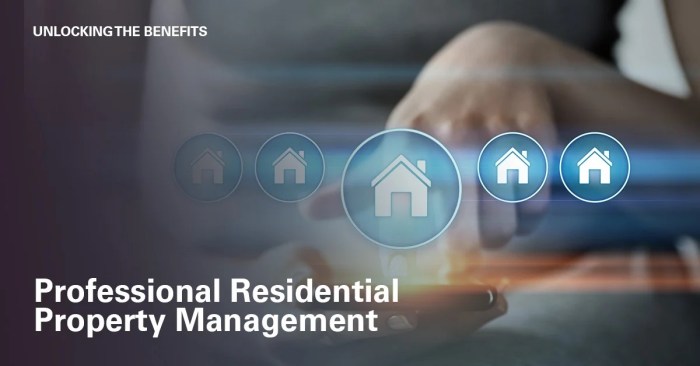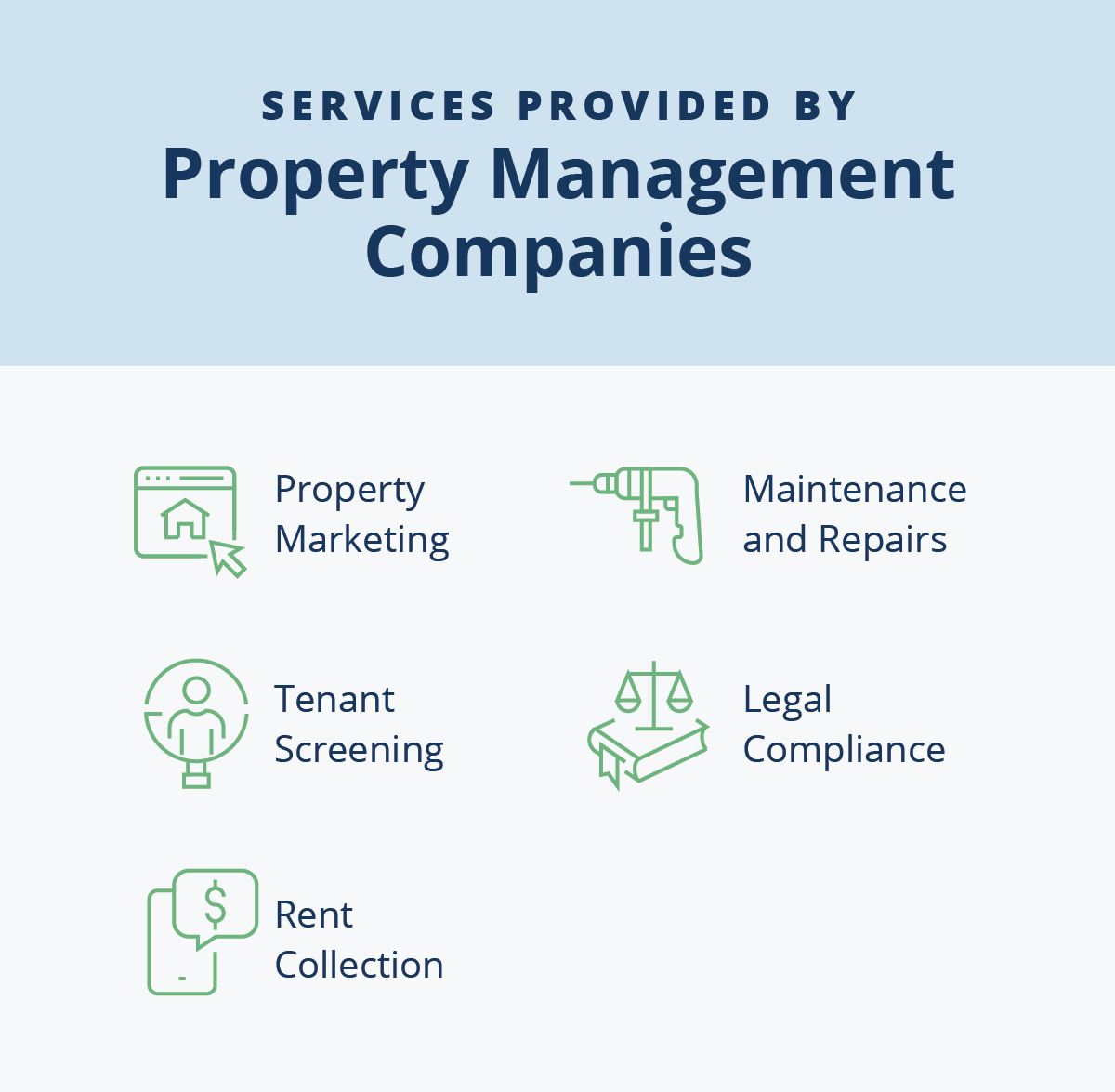Mastering Residential Property Management: A Comprehensive Guide
Embark on a journey into the world of residential property management, where the art of overseeing properties unfolds with intricacy and precision. From attracting quality tenants to ensuring legal compliance, this guide covers all aspects essential for effective property management.
Delve into the nuances of marketing strategies, tenant acquisition, property maintenance, financial management, and legal compliance to elevate your understanding of managing residential properties.
Introduction to Residential Property Management
Residential property management involves the oversight, operation, and maintenance of residential real estate properties. This includes ensuring that the property is well-maintained, rent is collected on time, and tenants' needs are addressed promptly. Effective property management is crucial for maintaining the value of the property, maximizing rental income, and ensuring a positive living experience for tenants.
Importance of Effective Property Management for Residential Properties
Effective property management is essential for several reasons. Firstly, it helps in preserving the value of the property by ensuring that it is well-maintained and in good condition. This can attract high-quality tenants and justify higher rental rates. Additionally, property management helps in reducing vacancies by marketing the property effectively and ensuring quick tenant turnover.
It also ensures that all legal requirements are met, such as safety regulations and lease agreements, protecting both the landlord and the tenant.
Key Responsibilities Involved in Managing Residential Properties
- Marketing the Property: Advertising vacancies, showing the property to potential tenants, and screening applicants.
- Rent Collection: Ensuring that rent is collected on time and handling late payments.
- Maintenance and Repairs: Performing regular maintenance, addressing repair requests promptly, and coordinating with contractors.
- Tenant Relations: Addressing tenant concerns, handling complaints, and ensuring a positive living experience.
- Lease Enforcement: Enforcing lease agreements, handling evictions if necessary, and ensuring compliance with legal requirements.
Rental Property Marketing and Tenant Acquisition

When it comes to marketing rental properties and acquiring quality tenants, there are several strategies that can be implemented to attract the right individuals and ensure a successful tenancy. By employing effective marketing techniques and thorough tenant screening processes, property managers can maintain a high standard of tenants and minimize turnover rates.
Strategies for Marketing Rental Properties
Marketing rental properties is crucial to ensure a steady flow of potential tenants. Here are some effective strategies:
- Utilize online rental platforms and websites to reach a wider audience.
- Invest in professional photography and virtual tours to showcase the property accurately.
- Utilize social media platforms to advertise vacancies and engage with potential tenants.
- Consider partnering with local real estate agents or relocation services to increase visibility.
Attracting and Retaining Quality Tenants
Attracting quality tenants is essential for ensuring a smooth tenancy and reducing the risk of issues down the line. Here are some tips for attracting and retaining quality tenants:
- Set competitive rental rates based on market research to attract serious tenants.
- Maintain the property in good condition and promptly address any maintenance issues.
- Communicate clearly and professionally with tenants to build a positive landlord-tenant relationship.
- Reward loyal and responsible tenants with incentives or lease renewal discounts.
Tenant Screening and Selection Process
The tenant screening and selection process is critical to ensure that only qualified individuals are approved to rent the property. Here are the steps involved in the process:
- Require prospective tenants to fill out a detailed rental application form.
- Conduct background and credit checks to assess the tenant's financial stability and rental history.
- Verify employment and income to ensure the tenant can afford the rent.
- Contact previous landlords for references to gauge the tenant's behavior and reliability.
Property Maintenance and Repairs
Regular property maintenance is essential for ensuring the longevity and value of residential properties. By staying on top of maintenance tasks, property managers can prevent costly repairs in the future and provide a safe and comfortable living environment for tenants.
Common Maintenance Tasks for Residential Properties
- Regular inspections of the property to identify any issues or potential problems.
- Lawn care and landscaping maintenance to keep the property looking well-kept.
- Checking and replacing HVAC filters to ensure proper airflow and efficiency.
- Inspecting and repairing plumbing fixtures to prevent leaks and water damage.
- Painting and touch-ups to maintain the property's appearance and protect surfaces.
Handling Repairs Efficiently and Cost-Effectively
- Respond promptly to repair requests from tenants to prevent issues from escalating.
- Obtain multiple quotes from trusted vendors for repair work to ensure competitive pricing.
- Prioritize repairs based on urgency and impact on tenant safety and comfort.
- Maintain a budget for repairs and allocate funds accordingly to avoid financial strain.
- Communicate effectively with tenants about repair timelines and any inconveniences that may arise.
Financial Management in Residential Property
Effective financial management is crucial for maintaining the profitability and sustainability of residential properties. It involves budgeting, planning, rent collection, and expense management.
Budgeting and Financial Planning
Creating a detailed budget for your residential property is essential to ensure that all expenses are accounted for and that you have a clear overview of your financial standing. This includes setting aside funds for maintenance, repairs, property taxes, insurance, and other operating costs.
Financial planning involves forecasting future expenses and income, allowing you to make informed decisions about your property investment.
Rent Collection Processes and Dealing with Late Payments
Establishing a systematic rent collection process is key to maintaining a steady cash flow. Clearly Artikel rent due dates, late fees, and consequences for non-payment in the lease agreement. In cases of late payments, promptly follow up with tenants to ensure timely collection.
Consider offering incentives for on-time payments to encourage compliance with payment deadlines.
Strategies for Maximizing Rental Income and Minimizing Expenses
To increase rental income, consider implementing rental rate reviews periodically to ensure that your property is priced competitively within the market. Explore opportunities to add value to your property, such as offering additional services or amenities to attract higher-paying tenants.
Minimizing expenses can be achieved through proactive maintenance, energy-efficient upgrades, and negotiating favorable contracts with service providers.
Legal Compliance and Risk Management

Ensuring legal compliance and effectively managing risks are crucial aspects of residential property management. By understanding key legal requirements, ensuring fair housing practices, and implementing strategies to mitigate risks, property managers can maintain a successful and sustainable operation.
Key Legal Requirements for Residential Property Management
Residential property managers must adhere to various legal requirements to operate within the bounds of the law. Some key legal requirements include:
- Compliance with local, state, and federal housing laws and regulations.
- Ensuring proper documentation and lease agreements are in place.
- Abiding by property disclosure laws.
- Following eviction procedures in accordance with the law.
Ensuring Compliance with Fair Housing Laws
Compliance with fair housing laws is essential to prevent discrimination and ensure equal opportunity for all tenants. Strategies to ensure compliance include:
- Providing equal access to housing for all individuals regardless of race, color, religion, sex, national origin, disability, or familial status.
- Training staff on fair housing laws and regulations to prevent discrimination.
- Implementing consistent screening criteria for all prospective tenants.
- Avoiding discriminatory language or behavior in property listings, advertisements, and interactions with tenants.
Strategies for Mitigating Risks Associated with Property Management
Effective risk management is essential to protect both the property manager and the tenants. Strategies for mitigating risks associated with property management include:
- Regular property inspections to identify and address maintenance issues promptly.
- Obtaining comprehensive insurance coverage for the property.
- Implementing thorough tenant screening procedures to reduce the risk of problematic tenants.
- Establishing clear communication channels with tenants to address concerns and resolve conflicts proactively.
Last Word
As we conclude our exploration of residential property management, the intricate balance between tenant satisfaction, property maintenance, and financial planning emerges as the cornerstone of successful property management. Armed with this knowledge, you are well-equipped to navigate the challenges and opportunities in the realm of residential property management.
Common Queries
How often should property maintenance be conducted?
Regular property maintenance should be performed at least quarterly to address any potential issues promptly.
What are some key legal requirements for residential property management?
Key legal requirements include ensuring compliance with fair housing laws, maintaining proper documentation, and adhering to local rental regulations.
How can late rent payments be handled effectively?
Late rent payments can be addressed by implementing clear late payment policies, sending reminders, and if necessary, initiating legal actions.




